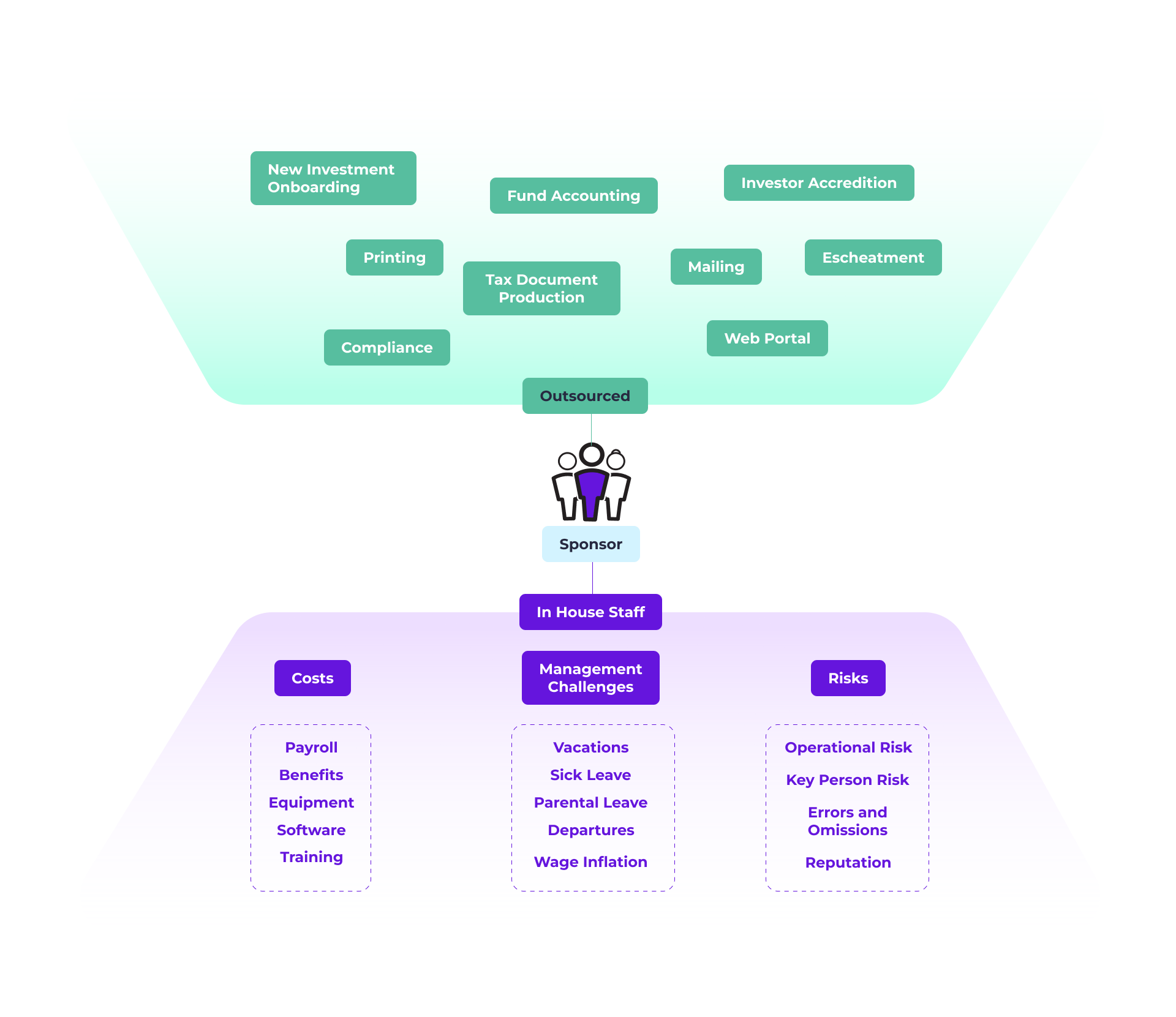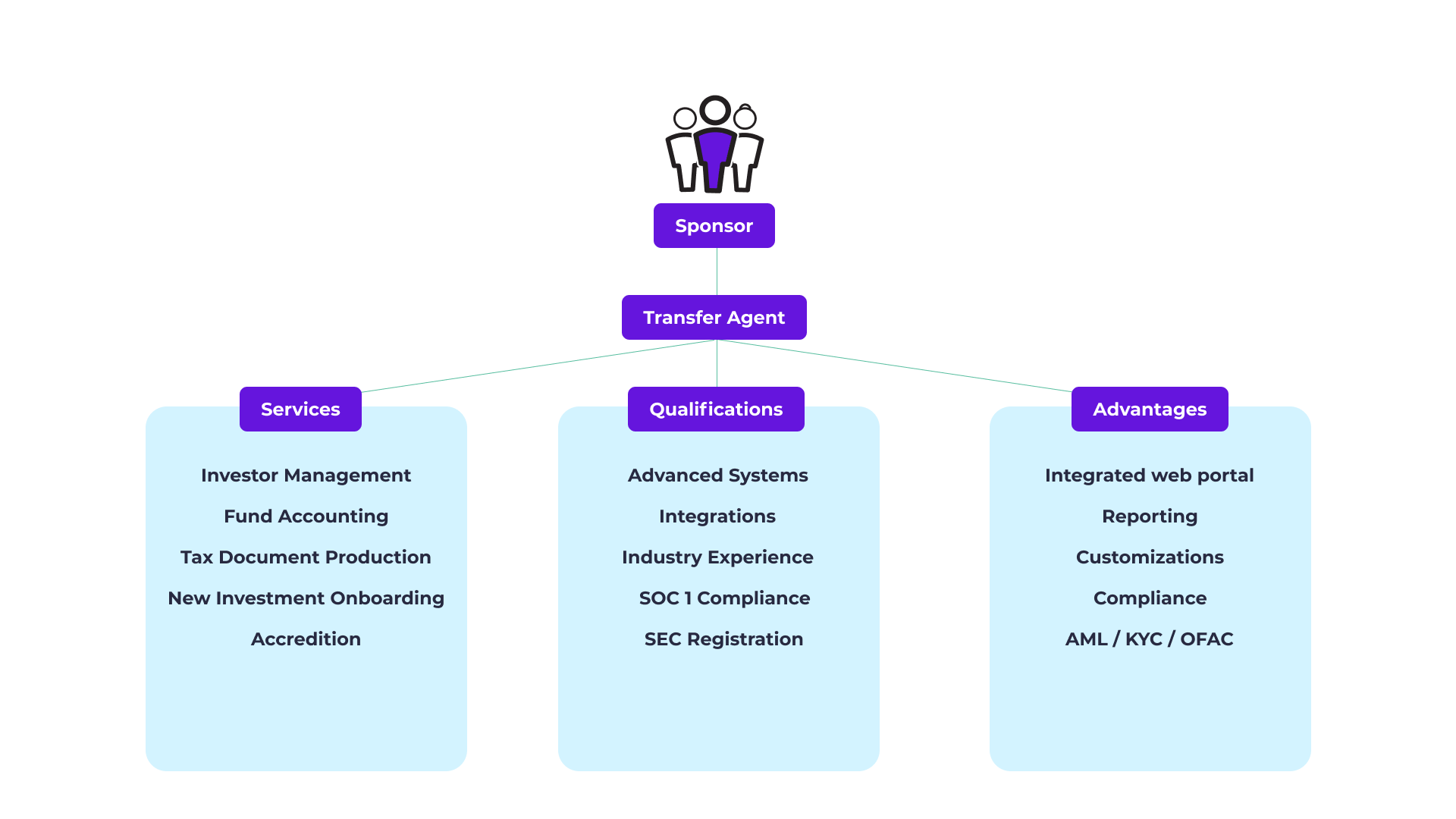The Transfer Agent: An Essential Partner for Retail Investor Funds
For private funds raising retail investor capital, investor management is a natural concern. With potentially hundreds or thousands of investors participating in a fund, the question of whether to use a transfer agent is an important one for fund management. Depending on the registration of the fund a transfer agent may be required. But whether or not it is required, for a fund with a substantial and growing investor base, a transfer agent partner is a very good idea.
Publicly registered non-traded funds, like other public investment funds, are typically required to have a transfer agent as part of compliance with regulatory standards, particularly those of the U.S. Securities and Exchange Commission (SEC). Transfer agents play a crucial role in managing the administrative aspects of a fund’s shares, including record-keeping, processing investor transactions and handling investor communications and distributions. Having a transfer agent helps ensure that the fund adheres to regulatory requirements for accurate record-keeping and timely processing of investor transactions.
However, a private fund manager might be well advised to use a transfer agent even when it’s not legally required for several strategic and operational reasons:
1. Efficiency in Record-Keeping: Transfer agents specialize in maintaining accurate records of shareholder accounts, transactions and balances and uses specialized systems to support this function. This reduces the administrative burden on the fund manager, allowing them to focus more on investment strategy and management.
2. Investor Relations Management: Transfer agents handle communications with investors, providing professional, timely responses to inquiries and managing distributions which enhance investor satisfaction and confidence.
3. Compliance and Regulatory Reporting: Although private funds face fewer regulations than public funds, they still need to comply with certain legal and tax requirements. Transfer agents ensure compliance with various requirements, particularly in areas like anti-money laundering (AML), Know Your Customer (KYC) and Office of Foreign Account Control (OFAC) procedures.
4. Risk Management: By outsourcing record-keeping and transaction processing to a transfer agent with specialized technology and procedures, fund managers mitigate operational risks associated with these tasks, such as human error, data mismanagement and data security.
5. Scalability: As a fund grows, the complexity and volume of administrative tasks increase. Transfer agents provide scalable solutions that can adapt to the fund’s changing needs without requiring the fund to proportionally increase its internal administrative staff.
6. Investor Confidence: Using a reputable transfer agent can lend credibility to a private fund, reassuring potential and current investors of the fund’s commitment to professionalism and sound operational practices.
7. Streamlining Capital Transactions: For funds that frequently engage in activities like capital calls or distributions, a transfer agent streamlines these processes, ensuring they are conducted smoothly and efficiently.
8. Cost Savings. A transfer agent’s pricing is based on the actual time and effort required to accomplish necessary back-office tasks. This eliminates issues of overstaffing and understaffing with an in-house team. Integrated services eliminates the higher costs associated with multiple third-party vendors.
9. Flexibility: Transfer agents with a full suite of back-office services and industry integrations are able to support potential future service needs. This frees fund management to pursue opportunities in various fund structures, asset classes and fundraising strategies with the same transfer agent partner.
10. Operational Knowledge: The private fund landscape is complex with many participants, fund structures and potential strategies. An experienced transfer agent gives fund management the benefit of the experience of its many clients over many years. As an operational partner, a transfer agent can be a valuable source of insight into potential opportunities, savings and fundraising channels.
Employing an advanced and engaged transfer agent provides a private fund manager with operational efficiencies, enhanced risk management, compliance support, investor relations and operational knowledge, all of which contribute to the overall success and growth of client funds.





